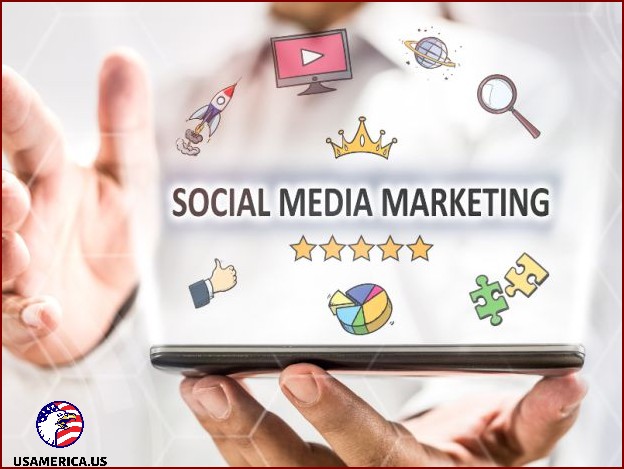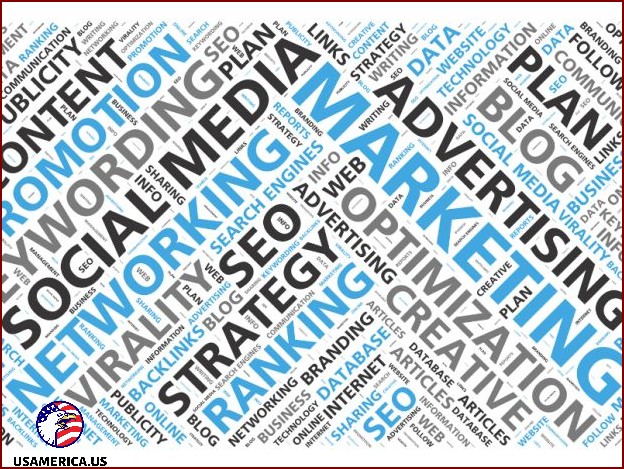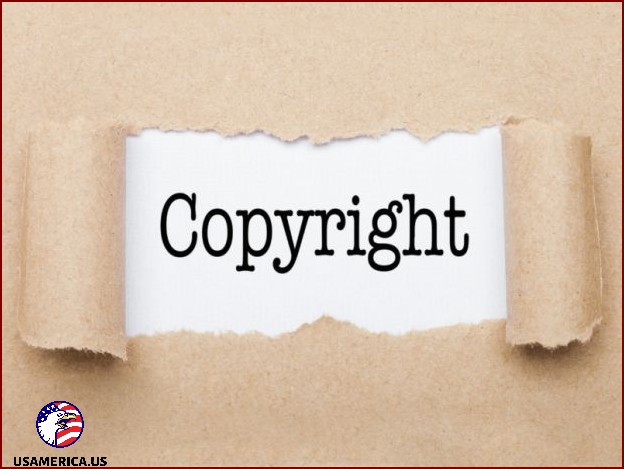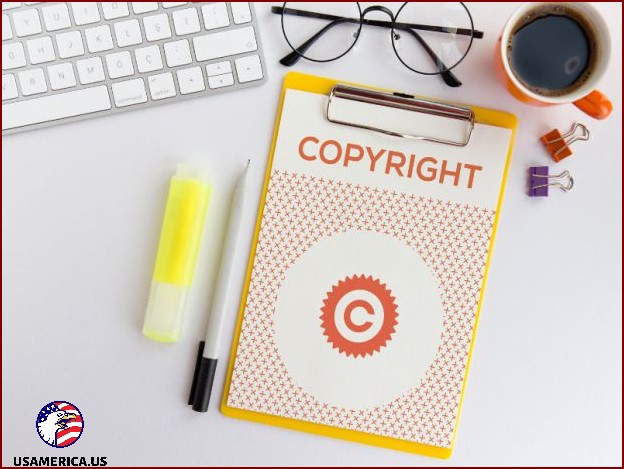Today, I want to talk to you about something very important for businesses like ours: copyright rules when it comes to social media marketing. It’s crucial that we understand and follow these rules to ensure we stay on the right side of the law and protect our brand.
When we use social media to promote our business, we often come across content that catches our eye and seems perfect for sharing with our audience. It could be a captivating image, an inspiring quote, or a hilarious video. But before we hit that share button, there are a few things we need to keep in mind.
Copyright law is all about protecting the rights of original content creators. It gives them control over how their work is used, including the right to decide who can copy, distribute, or display their creations. This means that without permission from the owner, using someone else’s content without proper attribution can lead to legal trouble.
To avoid any issues, here are a few guidelines to follow:
1. Always Seek Permission: If we want to use someone else’s content, the first step is seeking permission. We can reach out to the creator and ask for their consent. This not only shows respect for their work but also helps create positive relationships in the online community.
2. Give Credit Where Credit Is Due: When we do share someone’s content, it’s essential to give them credit. This means including their name or username and a link back to their original post. It’s a simple act but goes a long way in acknowledging their creativity and hard work.
3. Use Creative Commons Content: Creative Commons licenses offer a way to share and use copyrighted material while respecting the rights of the owner. These licenses allow content creators to specify how others can use their work. By using Creative Commons content, we can ensure we’re following the rules while still finding fantastic material to share.
4. Transform and Add Value: Another way to avoid copyright issues is by transforming the content we find and adding our own value to it. This could mean editing an image, adding commentary, or incorporating it into a larger piece of content. By transforming the material, we create something unique while still respecting the original creator’s rights.
Remember, when it comes to copyright and social media marketing, it’s always better to be safe than sorry. By following these rules, we can build our brand while being respectful to others in the digital space. Let’s stay creative, innovative, and legal in our social media journey!

If you’re using Facebook, Twitter, and other social media marketing tools to promote your business (and who isn’t these days?), you need to know about the rules of social media etiquette that your business should follow.
When you break these rules, your marketing results will suffer.
But did you know that there are also copyright rules for social media that your business must abide by if you want to avoid expensive legal trouble?
Unfortunately, copyright law often gets a bad reputation. If you take a look at the tweets in the #copyright hashtag on Twitter, you’ll see countless angry messages from people who had their YouTube videos taken down because of copyright complaints.
I wanted to talk to you about copyright laws and how they apply to our digital world today. It’s true that the U.S. Copyright Law hasn’t been updated since way back in 1976, and I agree that it needs some changes. However, whether we agree with the law or not, we still have to follow it.
So, here’s what I’ve got for you. I’ve put together some tips to help you understand and follow the basic copyright rules when promoting your business online and using social media for marketing. These guidelines will keep you on the right side of the law and out of any legal trouble.
Contents
Important Tips for Copyright Compliance on Social Media
When you’re using social media platforms for your business marketing, it’s crucial to follow copyright rules. This will help you avoid any legal problems down the line. Let me break it down for you:
Know and Respect Copyright Laws: It’s important for me to understand and follow copyright laws that apply to my business. These laws protect different types of content like images, videos, text, and music, and I need to be aware of the rights associated with them.
Consider Fair Use: I should also learn about fair use, which lets me use copyrighted material in limited ways without permission in certain situations. However, I need to be careful because the interpretation of fair use can vary.
Check Ownership and Permissions: Before I share any content on my social media channels, I need to make sure that I either own the content or have obtained the necessary permissions. This is especially important for content that I’ve hired freelancers to create or that I’ve acquired from third parties.
Navigating the DMCA: Let’s talk about the Digital Millennium Copyright Act (DMCA) and what it means for your social media activities. It’s important to know how to respond to takedown requests and use the DMCA to protect your own content.
Creative Commons Awareness: When you use content with Creative Commons licenses, be careful. It’s crucial to check the authenticity of the license and understand the rights it gives you, so you can avoid any legal problems.
Registering Copyrights: If your business creates creative work, it’s a good idea to consider registering your copyright with the government. This gives you stronger legal protection and the possibility of receiving damages if someone infringes on your copyright.
Strategies for Managing User-Generated Content
When it comes to social media marketing, user-generated content can be a valuable resource. However, it also poses some challenges. Here are some strategies I recommend for managing this type of content and respecting copyright:
Establish Clear Guidelines: First, I believe it’s important to define and communicate clear guidelines for user submissions. This includes getting consent from users to use their content and making sure it aligns with your brand’s values.
Moderate Submissions: Another strategy is to have a moderation process in place. This ensures that the user-generated content meets your standards and doesn’t infringe on anyone else’s copyrights.
Seek Permissions: Lastly, it’s crucial to seek permissions when reposting or using user-generated content. Always give credit to the original creator, and if necessary, ask for their explicit permission, especially if you plan to use it for commercial purposes.
Addressing Claims: It’s important to have a system in place to respond to copyright claims from users. This helps maintain good relationships and prevents conflicts from escalating.
Creating a Responsible Social Media Presence
By following these guidelines and strategies, you can ensure that your social media marketing efforts not only comply with the law but also improve your brand’s reputation. Showing respect for intellectual property on social media reflects positively on your business ethics and helps build trust with your audience and peers.
Educate Your Team: Make sure that your marketing team and anyone involved in your social media strategy understands these copyright rules and practices.
Stay in the Know: The online world is always changing, including its rules and laws. It’s important to stay up-to-date with the latest copyright regulations and adjust your strategies accordingly.
Spread the Word: Use your platform to teach your audience about the importance of respecting copyright and how it helps create a better digital community.
If you follow these guidelines carefully, you can effectively use social media marketing while still respecting copyright and fair use.
This not only protects your business from legal problems but also shows that your brand is responsible and ethical in the digital world. Here are a few more things to remember:
1. Don’t Assume Fair Use Covers You
Let’s talk about fair use. It’s a bit of a tricky concept, like walking on a slippery slope. Fair use was created so that we can use a copyrighted work in limited ways without having to ask for permission. But that doesn’t mean we can go wild and use it for free.
To know if our use is fair, we can follow a four-part test. These questions will help us figure out if our use is fair in the eyes of the law and the owner of the work:
- Why do I want to use the work and how will I use it?
- What kind of work is it?
- How much of the work am I using compared to the whole?
- How will my use affect the original work’s value in the market?
Watch out, because even the four-part test can become confusing and personal when applied to real-life situations. Believe me, it’s a lesson that lots of bloggers have had to learn the tough way over the years, especially when they got hit with a Getty Images Demand Letter.

2. Make Sure You Own It (or Have Permission to Use It) before You Publish It
Let’s talk about something super important before you hit that publish button. It’s all about owning what you create or getting permission to use it. You see, being the owner and being the author are not exactly the same thing. And trust me, understanding this difference can save you from some serious trouble and a lot of money.
Now, here’s the deal. When your employees create something awesome while working for your company, your business becomes the proud owner of their creative work. But when you hire freelancers or other contractors to create something for you, things work a little differently. In those cases, your business doesn’t automatically become the owner. Uh-oh! That’s where a Work-Made-For-Hire Agreement comes into play. This agreement should clearly state that you are the owner of the creative work.
In addition, I want to remind you that even if you license creative works for your business, you don’t become the owner of those works. Let me give you an example: if you buy an image from a stock photo website to use on your blog, you are given permission to use it in specific ways according to the licensing agreement. It’s important to thoroughly read and understand that agreement so you don’t unintentionally violate its terms!
3. Understand and Follow the DMCA Instead of Fighting It
The Digital Millennium Copyright Act (DMCA) is a law that protects online service providers, such as web hosts and social media sites, from being fully responsible for any copyright infringement committed by their users. If a copyright owner sends a request to take down content that may infringe their copyright, the online service providers are required to remove it to avoid legal liability.
Hey, listen up! I want to tell you about what’s happening to all those folks on YouTube who are complaining on Twitter. But here’s something they don’t get – and as a business owner, it’s something you need to know too. There’s a whole process for responding to a take-down request if you think you haven’t done anything wrong. And if you really haven’t, then you better speak up!
And here’s another thing: if someone goes ahead and publishes your stuff without asking for permission, guess what? You have every right to send a DMCA Take-Down Request to the online service provider. It’s your job to look out for your own creative work and make sure nobody messes with your copyrights.

4. Watch Out for Creative Commons
Did you know about Creative Commons? It’s a nonprofit group that helps creators share their work with others. It’s supposed to make things easier, but there are some problems you should be aware of that could harm your business.
The biggest issue is that just because someone puts a Creative Commons license on their work, it doesn’t mean they actually own the copyright. Using their work without permission could get you in trouble and cost your business a lot of money.
Firstly, let me tell you something important. The Creative Commons organization doesn’t take responsibility for any issues you might encounter with its licenses in the future. If something goes wrong, you’re on your own. And since Creative Commons doesn’t have any legal significance, it won’t assist you in a legal battle. So, be cautious and take matters into your own hands.
5. Protect Your Creative Work with Federal Copyright Registration
When you create something, like a piece of art or writing, you automatically become the owner of the copyright. This means you have the exclusive rights to your work. But here’s the deal: if you want to ensure stronger protection for your rights, you should consider getting your work federally registered.
Federal copyright registration turns your rights into something more powerful. It means your rights are backed by federal law. This law was created by Congress to protect copyright owners like you. So, even though you technically own the copyright without registration, the extra step of federal registration gives you more legal authority and protection.
As a creator, you’ve got some awesome rights when it comes to your work. You can make copies, share it with others, make new versions of it, perform it, and show it off to the world. Pretty cool, right?
Now, even if you don’t think your work is a big deal right now, it could be worth a whole lot in the future. So, it’s super important to protect it and make sure nobody else uses it without your permission. If they do, it could end up costing your business some serious money.
But don’t worry! There’s a way to safeguard your creations. By getting your work officially registered with the government, you can be eligible for fees and damages, even if you can’t prove how much money you lost. Trust me, that’s a huge advantage for your business!

Understanding User-Created Content: Your Rights and Responsibilities
Let’s talk about user-created content and what you need to know. It’s important to respect the creators and understand your rights and responsibilities when using their work. Here are a few things to keep in mind:
- Show Respect for the Creator: When you want to share or repost user-created content, it’s crucial to respect the original creator’s intentions. Always give credit where it’s due and consider asking for permission, especially if you plan to use the content for business reasons.
- Know about Licensing: User-created content often comes with specific licenses or terms of use. Some creators are happy to share their work under Creative Commons licenses, while others may expect compensation or recognition. Make sure you are aware of the license associated with the content you want to use.
- Moderation and Consent: When you ask people to share things on your website, it’s important to explain the rules and get their permission first. I want to make sure that nothing inappropriate or copyrighted is published without my knowledge, so I have a clear and fair process to review content before it goes live. This protects both me and the people who contribute.
- Handling Copyright Claims: If someone tells me their content was used without permission, I take their concerns seriously. I have a system in place to address those claims right away. By communicating openly and finding a resolution, we can avoid any legal problems.
- Balancing Freedom and Guidelines: User-generated content is valuable because it adds authenticity to my brand. However, I also have to make sure that what people submit fits with my values and doesn’t violate any copyright or intellectual property rights. So, I have some guidelines in place to keep everything in check.

When it comes to user-generated content, treating it with respect and understanding, and having a clear framework, can help you make the most of its potential while also protecting your business from legal and reputational risks.
The Bottom Line
Following copyright rules is not just about avoiding legal issues. It also establishes trust and respect in your industry and with your audience.
By closely following copyright laws, your business becomes part of a larger picture – one where intellectual property rights are valued and creators receive the recognition they deserve. This commitment goes a long way in building confidence with your stakeholders, partners, and customers.
As I continue to navigate the ever-changing digital world, understanding and respecting copyright laws is incredibly important. It’s not just a smart business move; it’s the right thing to do.
By staying up-to-date with copyright laws, teaching my team about them, and setting clear guidelines for how we use content, I am building a strong foundation for my business’s future. But it’s not just about following the rules.
It’s about showing integrity, embracing innovation, and respecting the creativity of others in today’s digital world.
When I commit to understanding and applying copyright laws, I am weaving an important thread into the story of my business.
Post navigation
Hello! I'm Ronald Smith, a dedicated finance consultant based in the USA and the author behind usamerica.us. My passion lies in empowering individuals and businesses to navigate the complex world of finance with confidence and ease. With a wealth of experience in financial planning, investment strategies, and economic insights, I've established usamerica.us as a premier destination for those seeking to enhance their financial literacy and achieve their economic goals. Whether you're aiming for personal wealth management, understanding market trends, or seeking strategic investment advice, my mission is to provide you with the tools, knowledge, and support needed to make informed financial decisions. Welcome to my world, where your financial success is my top priority!
